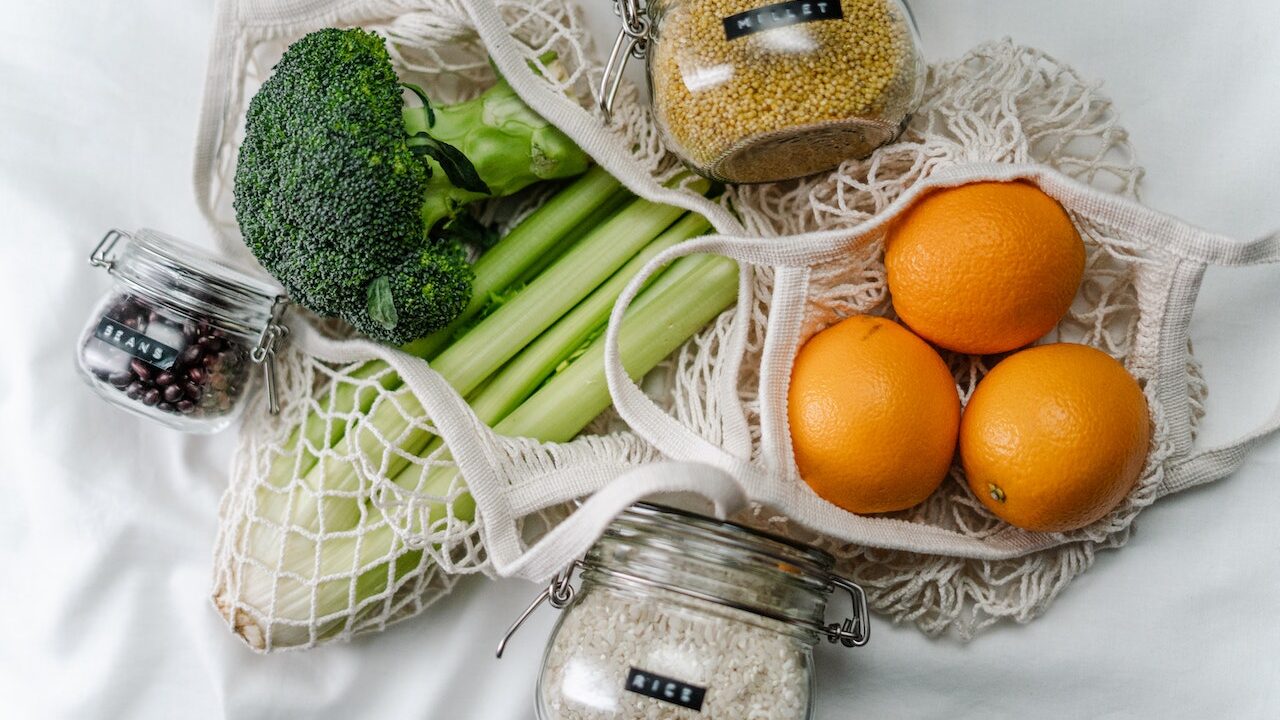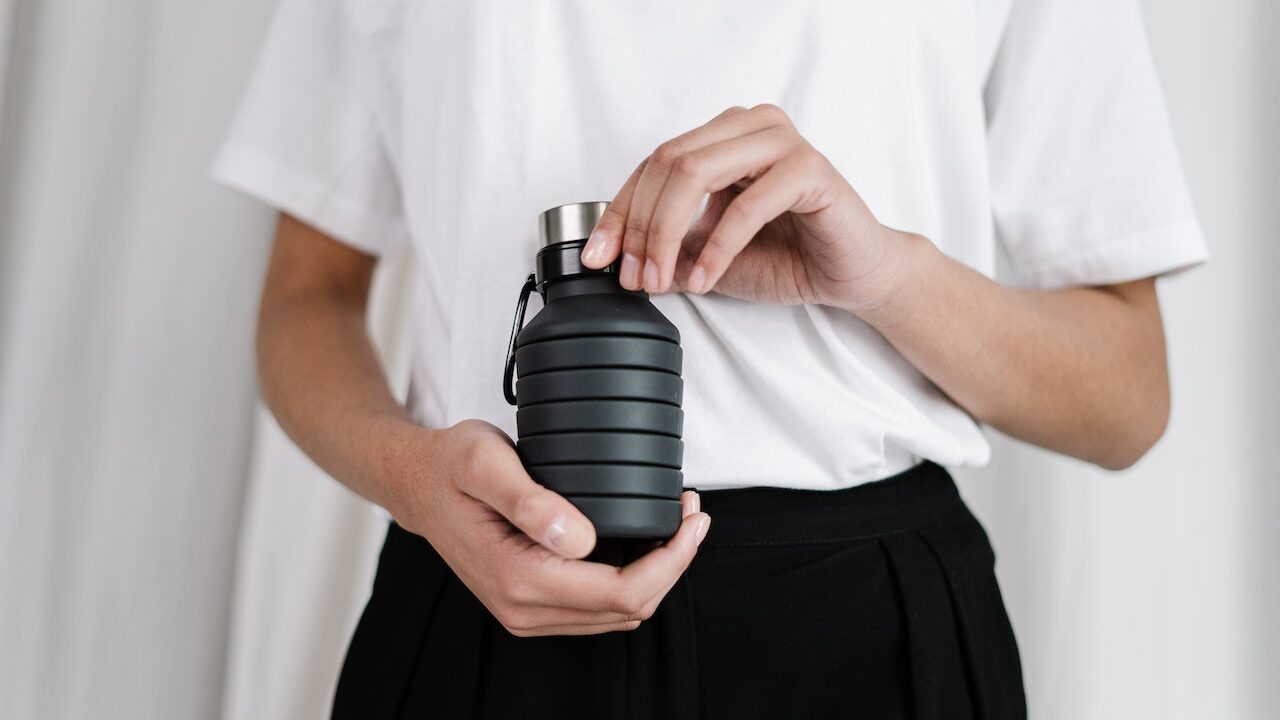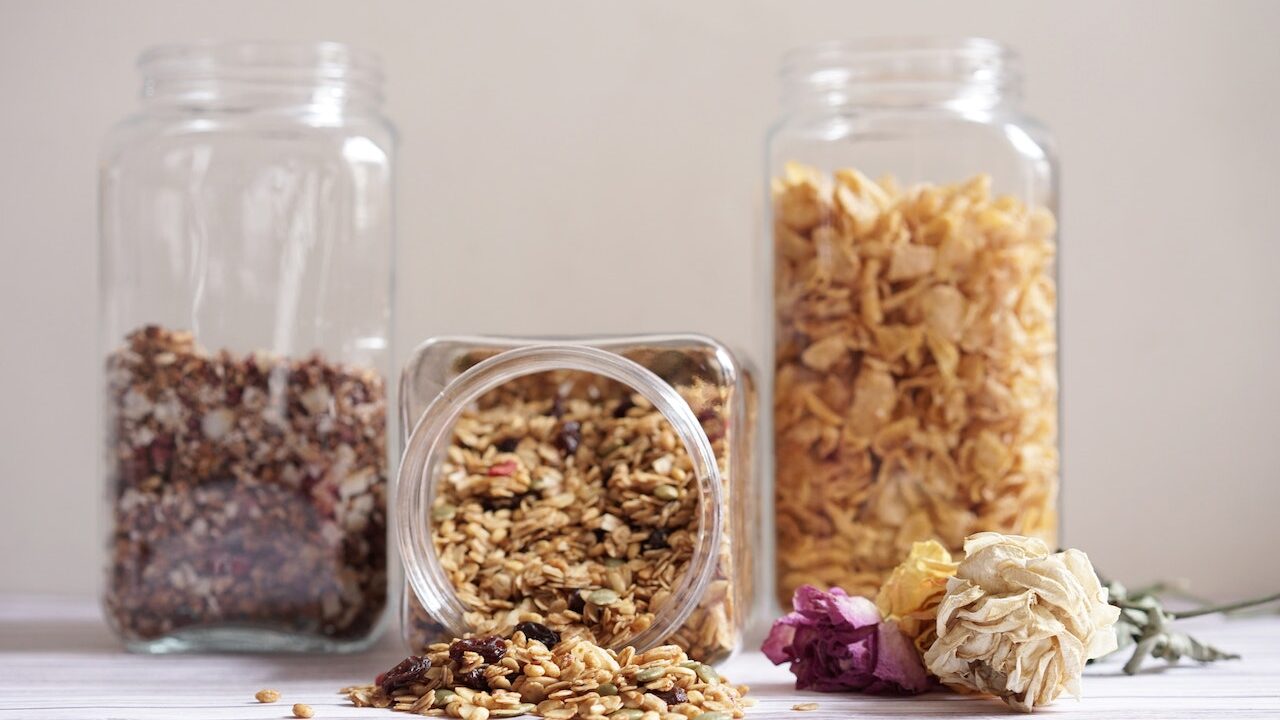Living a waste-free lifestyle is more crucial than ever. We produce a lot of garbage in the kitchen, one of the important than ever before. You can simply lessen the environmental effect of your kitchen by choosing the proper goods and making a few straightforward adjustments. Zero-waste kitchen products are becoming increasingly popular among environmentally conscious consumers. By using zero-waste kitchen products, we can reduce our environmental footprint and contribute to a cleaner, healthier planet. In this article, we will introduce you to 12 essential zero-waste kitchen products that will help you to live a more sustainable lifestyle.
1: Reusable Shopping Bags
One of the main causes of environmental contamination is plastic bags. You may lessen the amount of plastic garbage produced by your shopping trips by utilizing reusable shopping bags. These reusable shopping bags are created from eco-friendly materials like cotton, jute, or bamboo.

2: Zero Waste Produce Bags
Another significant source of waste in the kitchen is plastic fruit bags. You can avoid using disposable plastic bags by using reusable produce bags. These bags may be readily washed and reused because they are constructed of lightweight, breathable material.

3: Beeswax Wraps
Plastic wrap can be replaced with beeswax wraps as a sustainable option. These wraps are flexible and simple to use because they are composed of organic cotton and coated in beeswax. They can be used to wrap sandwiches or snacks, cover bowls or even store food in the refrigerator.
4: Zero Waste Stainless Steel Straws
One of the most frequently discovered things in ocean trash is plastic straws. You may do away with the need for single-use plastic straws by utilising stainless steel straws. These straws are strong, long-lasting, and simple to clean.

5: Zero Waste Water Bottles
Plastic waste is significantly increased by single-use plastic water bottles. Use a reusable water bottle to save money and lessen your influence on the environment. There are numerous choices, including bamboo, glass, and stainless steel.

6: Zero Waste Trash Bags
The majority of trash bags are made of plastic, which does not biodegrade and takes thousands of years to decompose. On the other hand, compostable garbage bags are constructed of biodegradable materials and can decompose naturally in a landfill or compost bin.
7: Zero Waste Coffee Filters
Frequently constructed of bleached paper, coffee filters have a single usage. You may lessen the waste produced by your coffee ritual by utilising Zero Waste coffee filters. These filters are washable and reusable and made of fabric or stainless steel.
8: Glass Food Storage Containers
Plastic food storage containers are not biodegradable and can leak dangerous chemicals into your food. Glass food storage containers are a more wholesome and environmentally friendly option. They may be used to store a range of meals and are reusable and simple to clean.

9: Bamboo Utensils
In the kitchen, disposable plastic utensils are a common source of trash. You may lessen your impact on the environment and do away with the need for disposable plastic by utilizing bamboo utensils. These kitchen tools are strong, portable, and simple to clean.
10: Dishwashing Soap Bars
Traditionally, dishwashing liquid has been sold in non-biodegradable plastic bottles. Dishwashing soap bars are an eco-friendly substitute that can reduce the amount of plastic trash you produce. The dishes, surfaces, and even clothing may all be cleaned with these all-natural cleaning bars.

11: Silicone Baking Mats
Disposable parchment paper produces waste that could harm the environment. A reusable alternative that can assist you in cutting down on waste in the kitchen are silicone baking mats. These mats are non-stick, reusable, and simple to clean.
12: Zero Waste Napkins
Although disposable paper napkins are a typical item in many homes, they produce a lot of waste. Zero Waste Reusable napkins are a more economical and environmentally friendly option. There are a variety of materials available, each with special advantages, including cotton, linen, bamboo, and hemp.

Conclusion
Making a zero-waste kitchen may seem like a daunting endeavour, but by starting small and changing your routines and buying preferences, you can have a big influence on the environment. Start by making use of reusable containers, bags, and utensils in your daily activities and start buying in bulk. Reduce food waste as much as possible, and compost all organic waste. You may design a sustainable and eco-friendly kitchen that is advantageous to both you and the environment by using the advice in this article. Keep in mind that even the smallest effort can help reduce waste and protect the environment for future generations.




